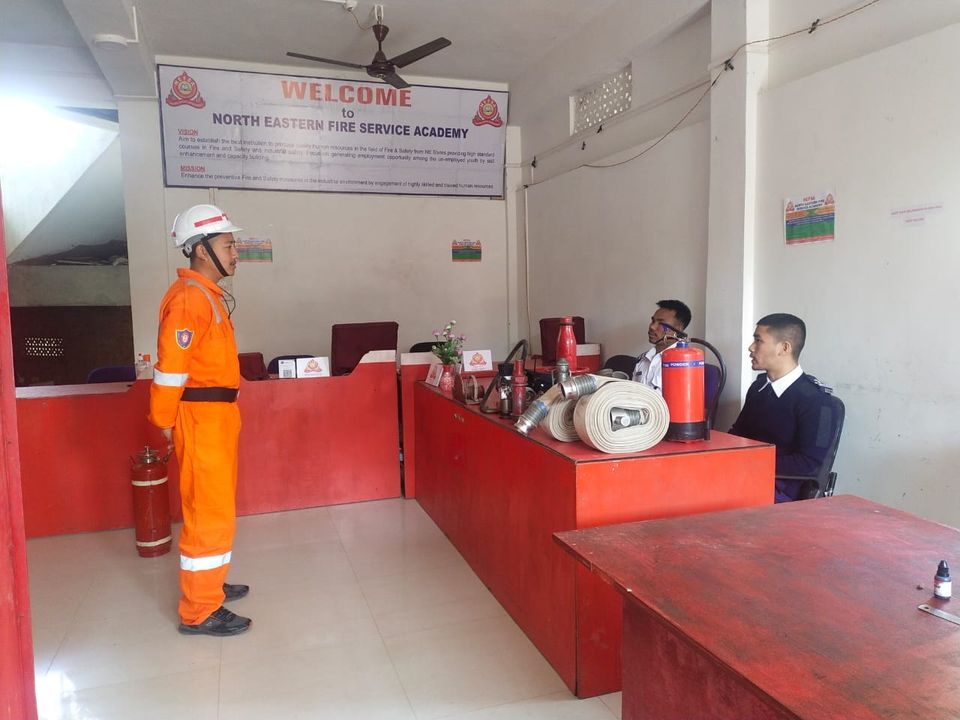Fire safety training is not just about learning to extinguish flames; it’s about instilling confidence, preparedness, and a proactive mindset in students. The North Eastern Fire Service Academy (NEFSA) in Dibrugarh, Assam, has been at the forefront of this transformative approach, empowering students to become confident and capable individuals in the face of emergencies.
The Importance of Confidence in Emergency Situations
In emergency situations, especially fires, individuals often experience panic or uncertainty. Confidence plays a crucial role in overcoming these emotions and taking decisive actions. Students who undergo comprehensive fire safety training are better equipped to:
-
Recognize Hazards Early: Identifying potential fire risks before they escalate.
-
Follow Evacuation Procedures Calmly: Executing well-practiced evacuation plans without haste.
-
Assist Peers Effectively: Helping fellow students during emergencies with composure.
NEFSA’s training programs focus on building this confidence through structured and practical methodologies.
NEFSA’s Training Methodology: A Holistic Approach
NEFSA adopts a three-pronged approach to fire safety training: Knowledge, Skills, and Psychological Readiness. This ensures that students are not only informed but also prepared to act confidently during emergencies.
1. Knowledge Acquisition
Students are educated about fire safety principles, including:
-
Understanding fire behavior and prevention techniques.
-
Learning about fire safety equipment and their proper usage.
-
Recognizing fire hazards in various environments.
This foundational knowledge forms the basis of their confidence.
2. Skill Development
Practical skills are honed through:
-
Hands-on training with fire extinguishers and other safety equipment.
-
Simulated fire drills and emergency response exercises.
-
Role-playing scenarios to practice decision-making under pressure.
These activities ensure that students can translate their knowledge into effective action.
3. Psychological Preparedness
NEFSA emphasizes the importance of mental readiness by:
-
Conducting debrief sessions after drills to discuss emotions and reactions.
-
Teaching stress management techniques and maintaining composure.
-
Encouraging a proactive mindset towards safety and responsibility.
This psychological training helps students remain calm and confident during real emergencies.
Real-World Impact: Success Stories from NEFSA
Graduates of NEFSA’s programs have demonstrated remarkable confidence and competence in various situations:
-
Community Safety Initiatives: Students have led fire safety awareness campaigns in their communities, educating peers and adults alike.
-
Emergency Response Leadership: During local emergencies, NEFSA-trained individuals have taken charge, coordinating evacuations and assisting first responders.
-
Career Advancement: The confidence gained through NEFSA’s training has propelled many students into successful careers in fire safety and disaster management.
These success stories underscore the effectiveness of NEFSA’s approach in building student confidence.
Conclusion
NEFSA Fire Academy’s comprehensive fire safety training programs go beyond teaching technical skills; they cultivate confident, capable individuals ready to face emergencies head-on. By focusing on knowledge, practical skills, and psychological preparedness, NEFSA ensures that students are not only safe but also empowered to lead and act decisively in critical situations.
Contact us today to know more about admissions, batch schedules, and course details.
Visit: www.nefsaindia.com
Location: Dibrugarh, Assam
For More Blogs:- Click here







